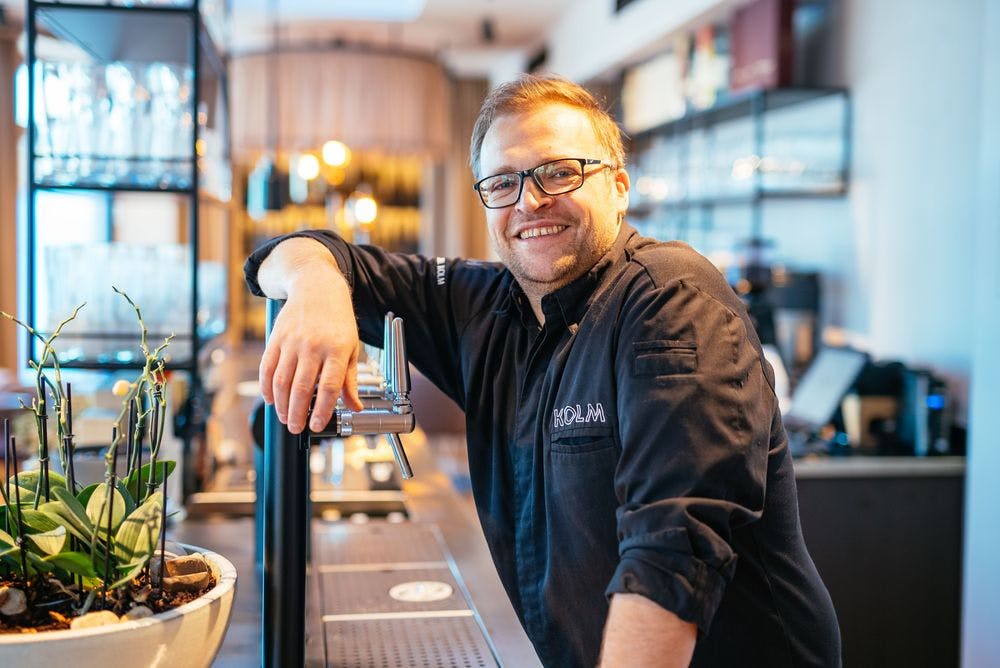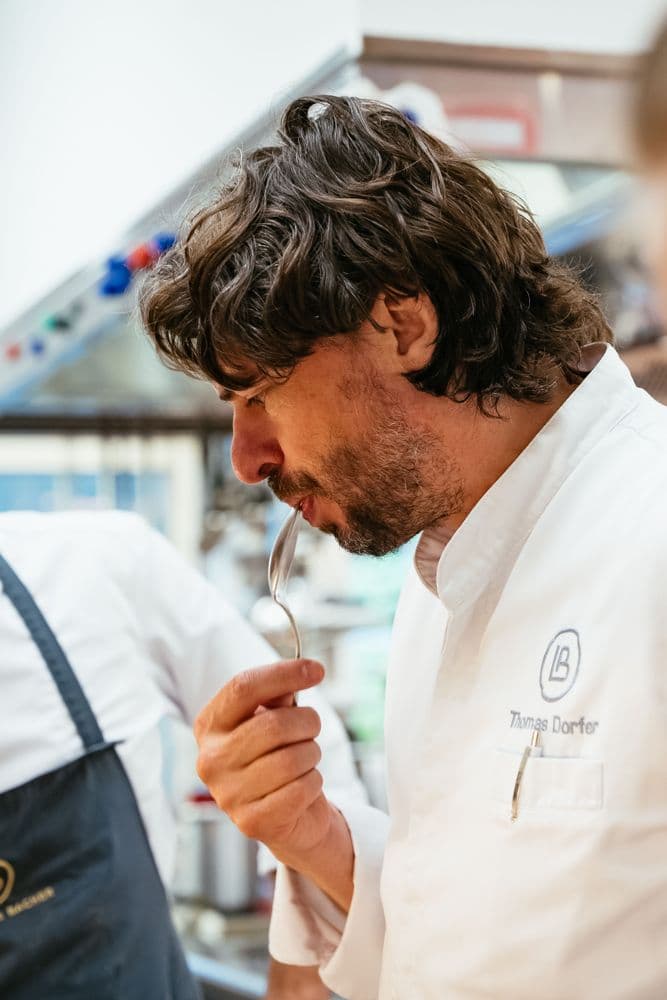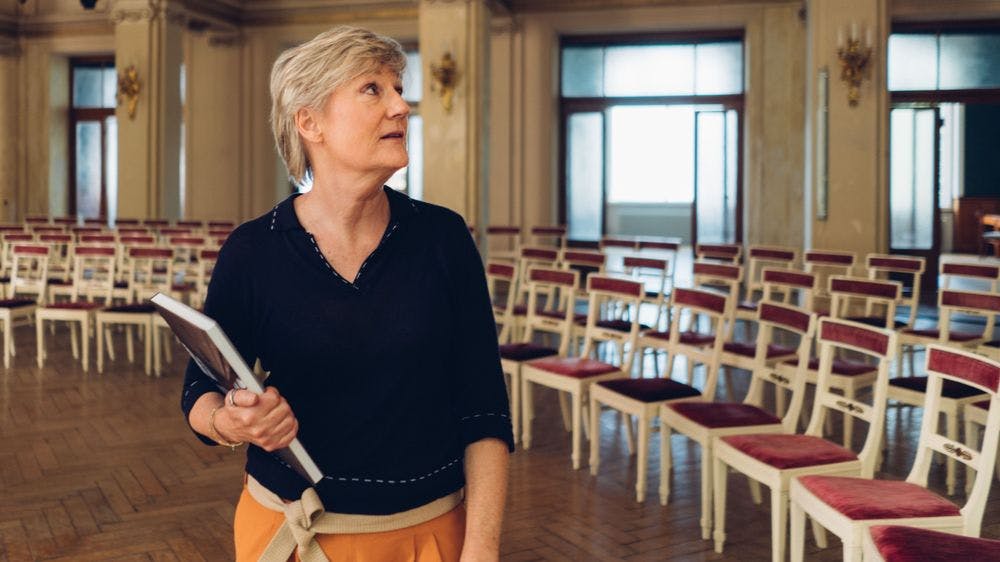Cook the Garden
Anyone on the lookout for something special is sure to find it at Peter Pichler’s Molzbachhof. He is the third generation of the family to carry on their life’s work. He does it with flair and with "Gaumenkitzel", the name of his gourmet restaurant and the German word variously translated as “dishes that tickle the palate” or “treats for the taste buds.” For him, innovation and sustainability go hand in hand.Peter Pichler Jr. makes his way to his garden early in the morning, a time when nature puts on its first display of splendor. The stillness envelopes you as the day awakens. You can see the glistening morning dew slowly retreating before the first warming rays of the sun. But above all, there is a delightful smell: the fragrance of herbs – actually they are what set the tone at the Molzbachhof. It is Peter’s garden that writes the daily menu for Gaumenkitzel, his gourmet restaurant. “If lemon balm is the first scent that wafts through the window in the morning, then a balm sorbet is sure to land on the menu that night. But if the radishes are ready to pick, it is time for pickled radishes.” Of course, not all products originate at the Molzbachhof itself, but you can be sure that they are from the region. Peter wouldn’t have it any other way. And many guests are surprised when he says with mixed emotions: “Even my father and his father lived very much in sync with nature. Nowadays you have to explicitly state that the butter, curd cheese and lamb come directly from the region. It used to be normal for us to fetch the milk straight from our neighbor in a large milk can instead of having it find its way to us in Tetrapak cartons.”
“Our guests know where the meat comes from and that the animals were well treated“
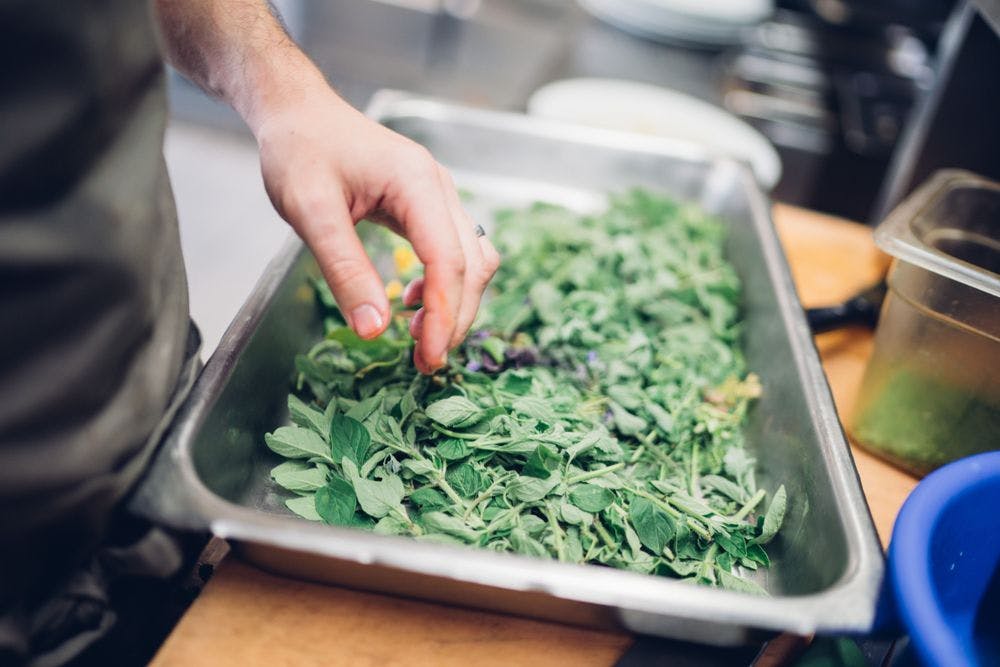
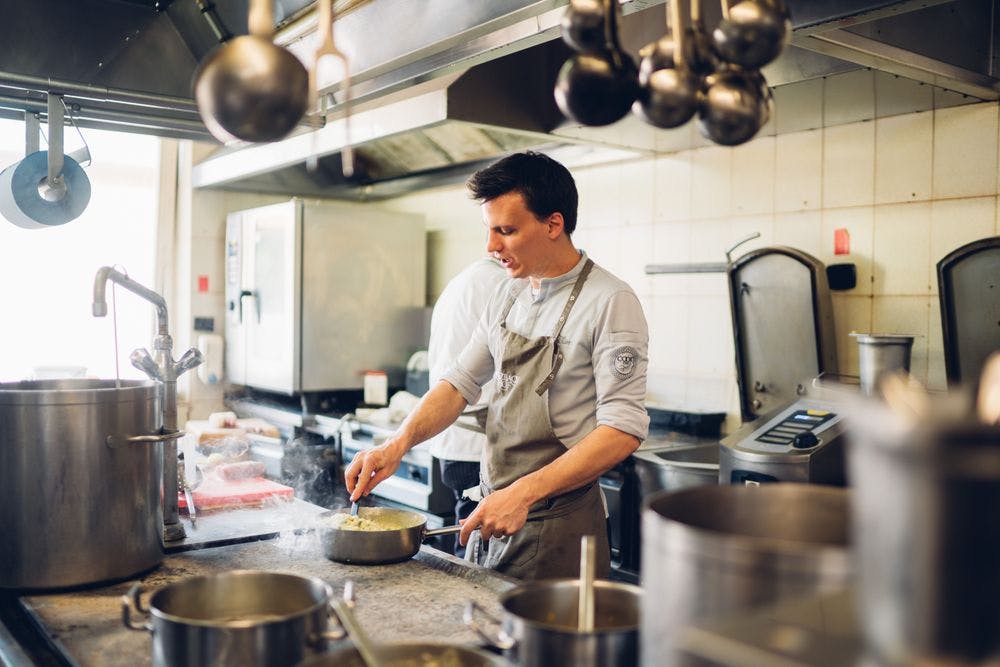
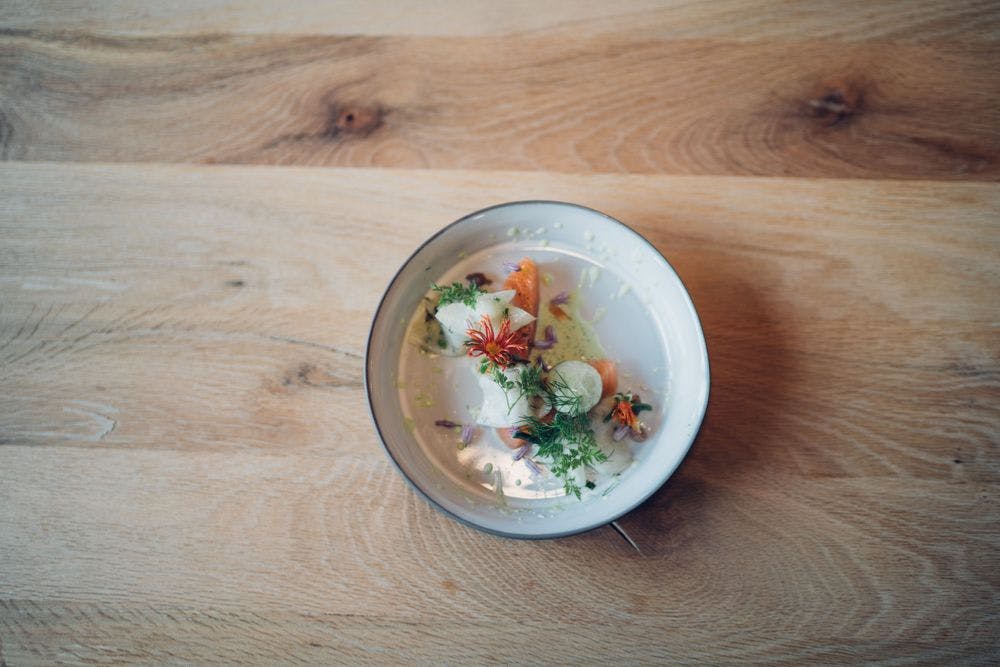
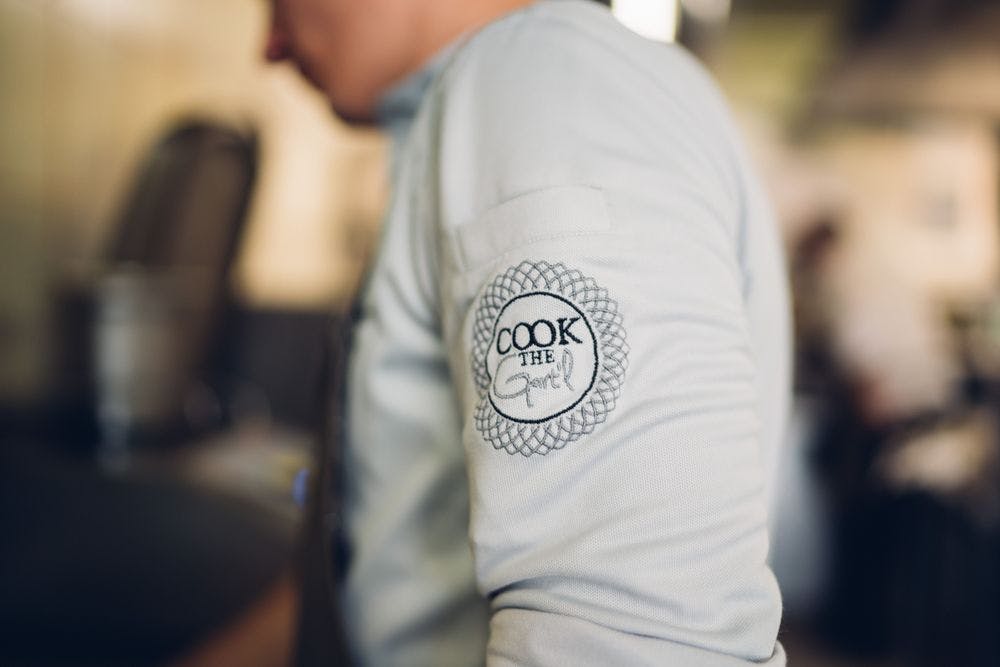
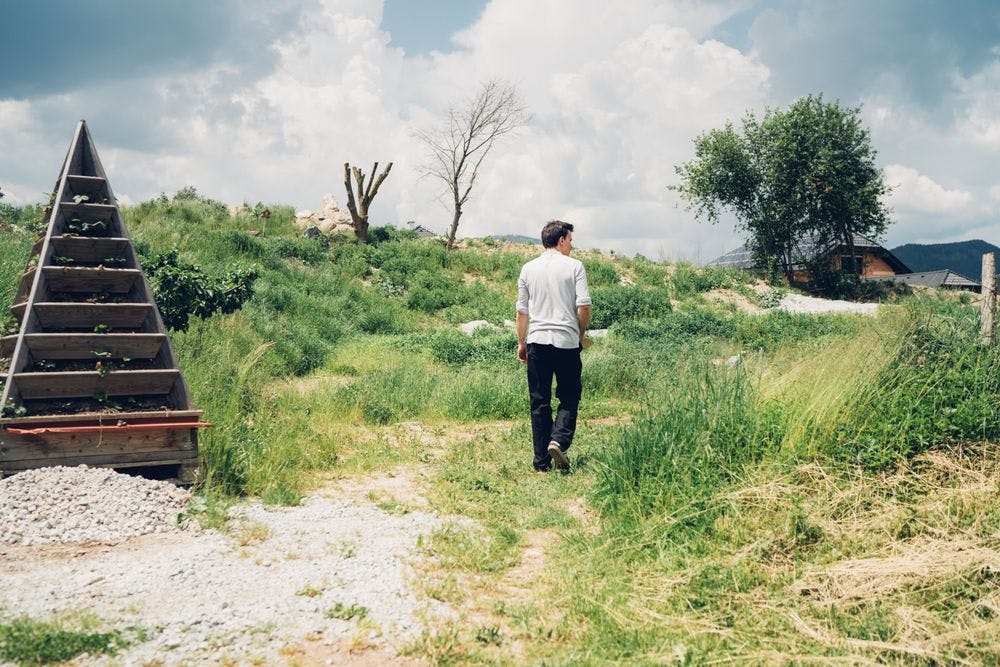
“If lemon balm is the first scent that wafts through the open window in the morning, then you can bet you will see a balm sorbet served that night. If the radishes are ready to pick, it is time for pickled radishes”
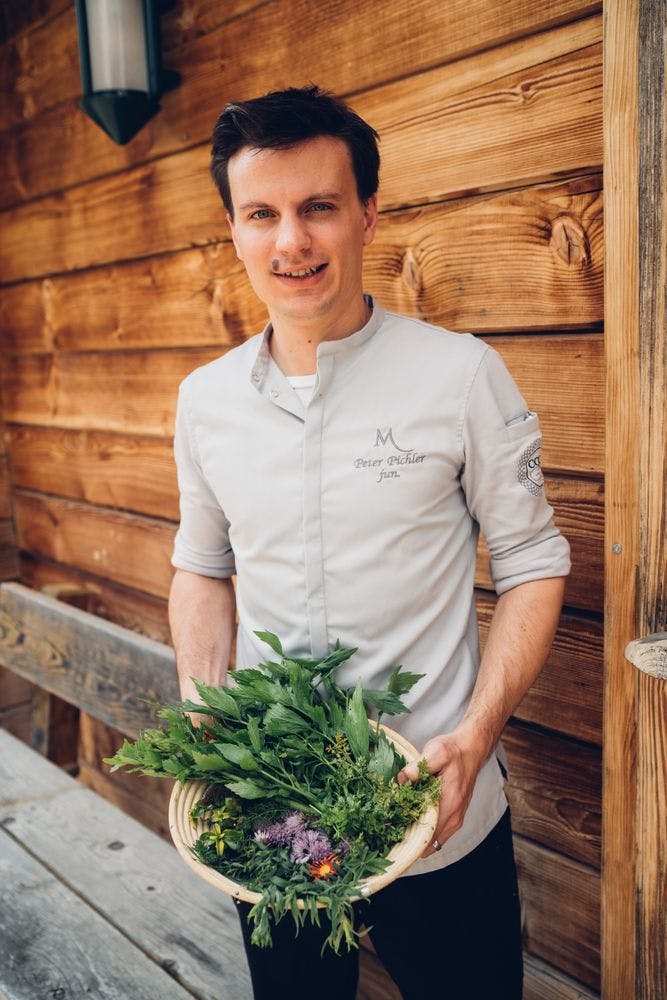
Much of Life at the Molzbachhof Revolves around Seeking and Finding...
...the latter predominates. That is because Peter and his family are constantly striving for something special. In 1969, this business opened its doors as a six-room pension. In the fifty years since, it has become a popular wellness hotel with a keen sensitivity to regional cuisine. Peter and his partner Nina run the operation, now in the third generation. Both have traveled the world and gathered international experience. Today they are letting that experience thrive and grow in creative ways in the Viennese Alps. They are into it heart and soul. With loving attention to detail. And very much in step with nature.
Where the Garden Writes the Menu
After some fine-tuning, Peter created his own line of cuisine he calls “Cook the Gart’l” (Cook the Garden). His creed comes through loud and clear: We cook ingredients fresh from nature. From our own garden and from farmers in the vicinity. Fresh ingredients and regional products are given top priority. The menu reflects both the modern and the traditional. Goods brought in by air are nowhere to be seen. And that is exactly why guests enjoy coming here: “Our guests know where the meat comes from and that the animals were well treated.” From the region, for the region – that makes all the difference in Peter’s mind: “Our approach only works because we draw on products from local farmers. Once the suppliers are gone, the whole construct starts crumbling.” But no one has any intention of going anywhere. In fact, all efforts are aimed at pushing this new approach, on expanding it in innovative and sustainable ways. As a result, “Cook the Gart’l” has already given rise to “Feel the Gart’l”: The hotel’s own wellness facility offers baths and treatments featuring herbal oils made in-house. The hotel operations themselves gained a new facet two years ago when a natural wood hotel was built. No glue or chemical substances were used in the construction, only natural materials. The oil furnace was replaced with a central energy installation, which generates clean power and heat from Austrian wood chips. Actually the only thing missing now is certification as an organic business. But there is a sound reason for that.
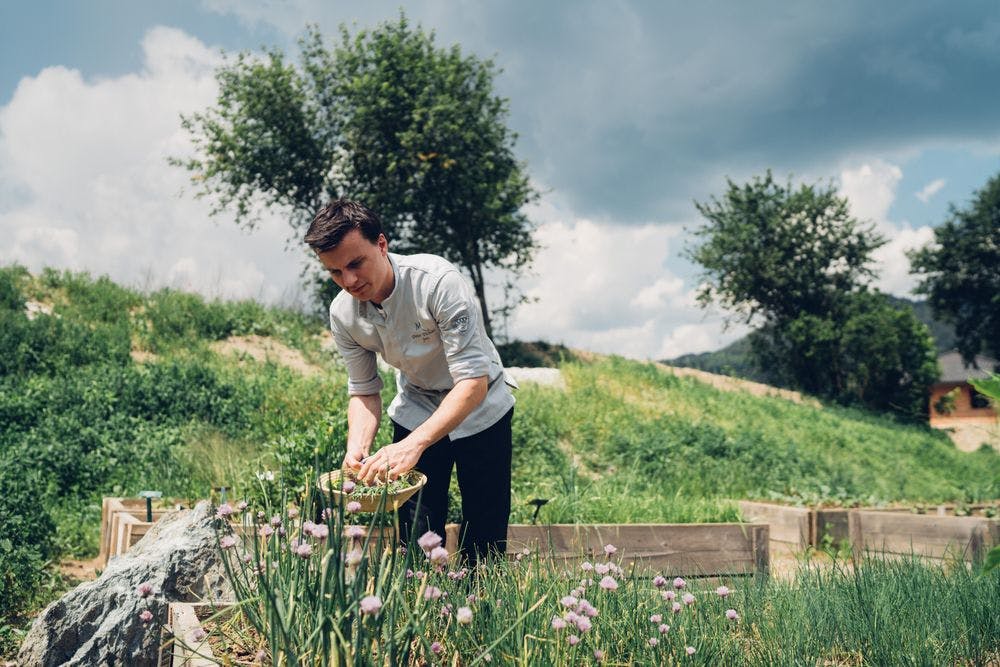
Regional Yes, But Not Necessarily Organic
“Shifting to an organic operation would impose a number of conditions on us. There are just too few advantages for taking this step in my opinion. Several women from town supply me with fresh chives. You can rest assured they are grown without pesticides and are used up by our kitchen in meal preparation the very same day. If we were an organic hotel, we would have to give up this collaboration and purchase organic chives from Romania if the supply in Austria no longer sufficed. Does that make sense? That is the question I have to ask myself.” The situation with fish is similar. According to regulations for organic food, it has to be caught in the wild. “But we do not have a sufficient supply of that kind of fish here. However, we do have a local fisherman who operates two large ponds. The fish definitely have ample room to thrive there and are well fed. He delivers fresh fish to me.” There are good reasons for not going after every seal of quality every time and for every purpose. At the Molzbachhof, the culinary line is developed while cooking is underway. And the team all definitely enjoys this creativity. “For me, it is the best profession. There are no other sectors where the doors are so wide open to you as in the restaurant trade. This fact and the good fortune my family and I have to be allowed to make this dream a reality in the midst of this scenic and intact cultural landscape is a priceless gift for me.”
Peter Pichler was born in 1987. Even as a child, he was passionate about helping out in his parent’s business. He completed his training at Tourismusschule am Semmering. After a multi-year apprenticeship in renowned establishments (e.g. Döllerer, Taubenkobel, Vila Joya or Gidleigh Park), Peter returned home in 2013. Soon he was in charge of the kitchen and in 2015 took over management of the business from his father.
Translated by: Mark Wilch
